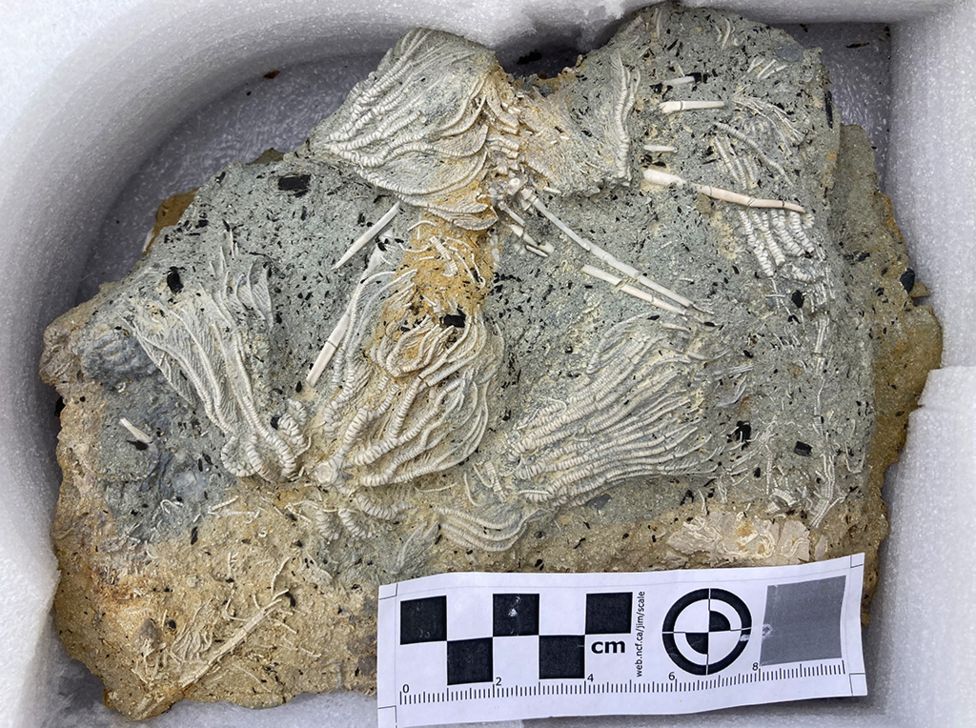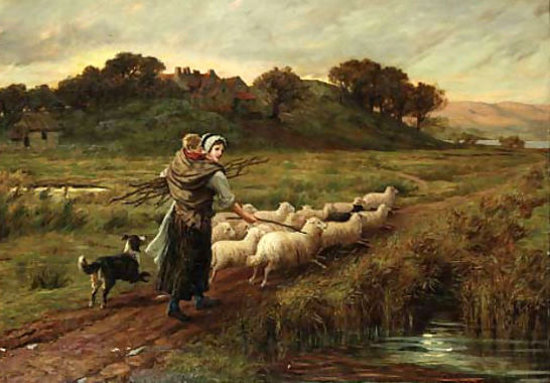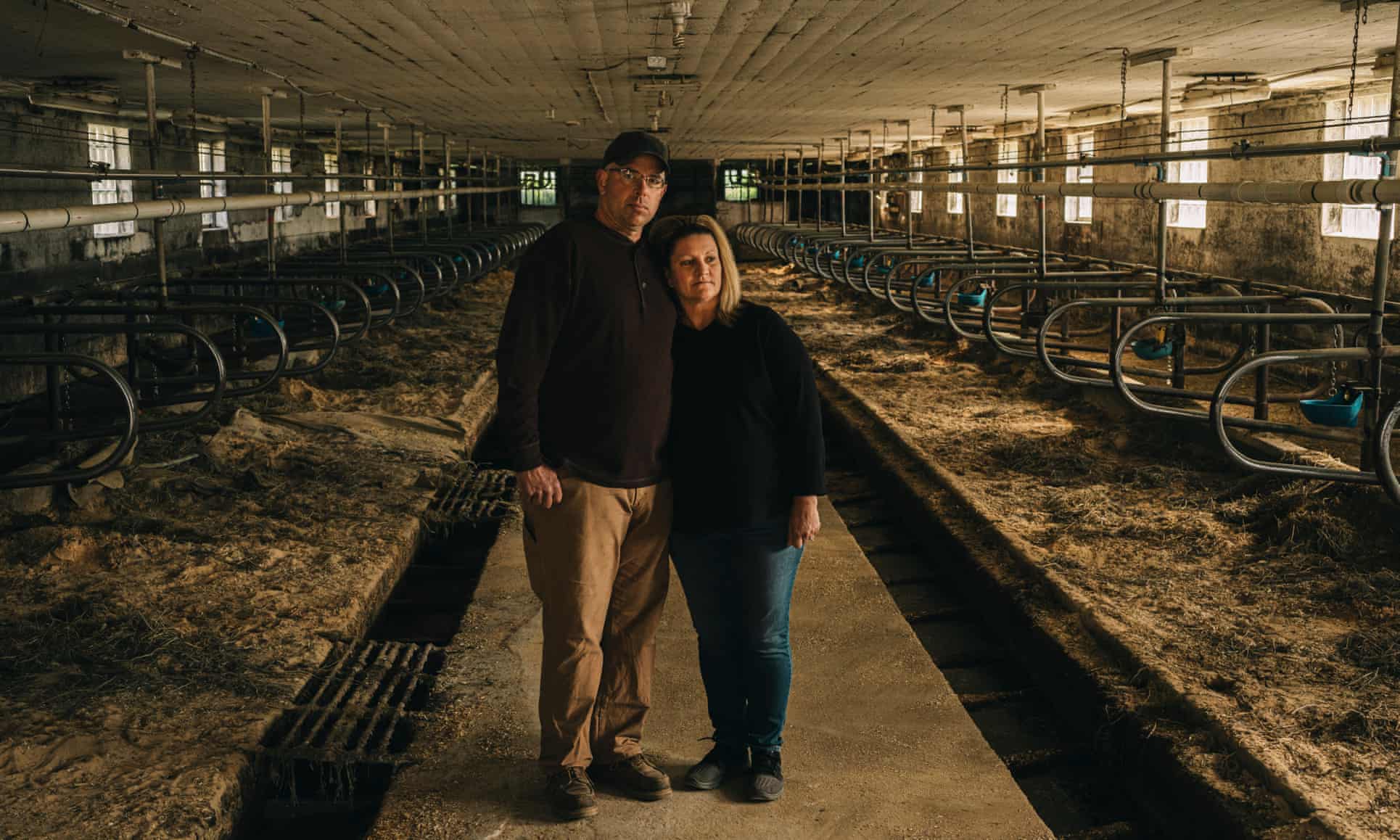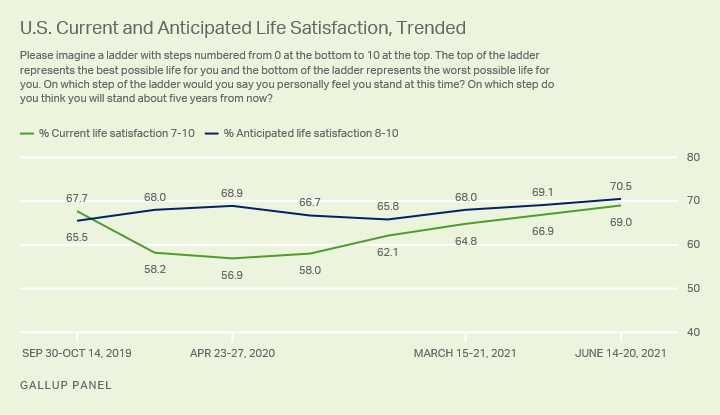|
You
can also view the message online
|
|||||||||||
 Châtenay-Malabry (FR - 92290), August 2, 2021 EFITA newsletter / 997 - European Federation for Information Technology in Agriculture, Food and the Environment Do not miss the Virus Jokes in English and French The informatique-agricole.org site now offers you the possibility of subscribing the RSS feeds of its two newsletters See RSS feeds to implement to ensure that you continue to receive this newsletter To unsubscribe this newsletter, please contact me directely: guy.waksman(a)laposte.net if this link Unsubscribe does not work. Please note that I changed the presentation of the links that are embedded in the name of the web service. 
Flooding in Germany in the EFITA newsletter of July 19, you asked “If climate change is a cause of flooding in Germany and Belgium, could the destruction of dams be another cause of recent flooding among many others (constructions, etc.)?” I would like to summarize the discussion in German media on the flooding catastrophe and its causes. I follow the website of the German public radio and TV stations and some national newspapers, such as “Der Spiegel”. In general, the cause of the flooding is seen in a extraordinary weather situation with severe rainfalls over many hours. This frequency of situations like this rises due to the climate change. Another aspect that has been discussed is if the loss of human lives could have been prevented: better warning systems, better organisation (more centralized or more decentralized, the well-known German discussion on federalism), early evacuation, etc. There is no consensus on this one. Finally, there is some discussion how the flooding is caused by soil sealing, soil degradation etc. Flood prevention has been an issue here for some years. Some suggestions are: allow more space for rivers (polders, renaturation of river courses), enable riparian ecosystems to keep more water by vegetation and soils, avoid soil degradation. Some of the rivers affected by the flooding are regulated by reservoirs (see https://de.wikipedia.org/wiki/Rurtalsperre). One of the goals of these reservoirs is to keep the water for the dry periods as in the last summers. Therefore, the reservoirs where already filled, when the rainpour started. One article mentions building or not-building a dam: In Austria, a flood prevention construction was postponed by a discussion between nature conservationists and land owners. See Der Spiegel I am not aware of any other discussion in the context of this recent flooding whether a specific dam was built, not built or destroyed. Hopefully, this is the info you wanted. Thanks for the newsletter, which is always well received. Best regards i. A. Dr. Esther MIETZSCH E-mail : E.Mietzsch(a)ktbl.de Überschwemmung… Was hätten wir tun können? Vorgestern habe ich einen Text gebracht, in dem der Begriff “Schuld” behandelt wird. Ich finde den Begriff “Schuld” schwierig. Bedeutet er doch, dass jemand für etwas verantwortlich gemacht werden kann. Doch kann man das bei einer Natur-Katastrophe? Sehen bauerwilli.com Ticket Without a Seat (an excellent video) This movie has won the Oscar for the best animated movie. Its duration is only 3 min. See how life can change when our perception changes. An outstanding movie!!! See video Signalé par Michel GIL ANTOLI Mél : michel(a)gilantoli.com To correspond with me (GW), please use this address: guy.waksman(a)laposte.net To subscribe the efita newsletter (please ask your friends and colleagues to test this link) Efita Newsletters subscription Before computers... Weekly newsletters about ICT in Agriculture in English and French Both newsletters have around 14000 subscribers. >>> Last weekly EFITA Newsletters in English (created in 1999) Efita Newsletters >>> Last weekly AFIA Newsletters in French (created more than 20 years ago in 1997) Afia Newsletters >>> Statistics for the last efita newsletter >>> Last issue of the afia newsletter >>> Last available satistics for the afia newsletter 6 tractor cab accessories that we can’t live without, by Kacie Hulshof If you have ever been in a modern tractor cab, you know there is more technology than ever before — everything from GPS to guide the tractor to tablets displaying yield maps. However, there are other smaller gadgets and opportunities in the tractor cab that can help farmers with day to day activities — such as Bluetooth to help the long days seem shorter. We went through our tractors and picked our favorite tractor cab accessories that make life a little bit easier. .../... See agdaily.com Can food systems really get to ‘net zero?’ AFN, by guest contributor: Thin Lei Win Around the world, achieving ‘net zero’ emissions by the middle of this century has become a rallying cry to keep climate change in check and avoid its worst impacts. Over 120 countries — from highly industrialized nations like Canada, Germany, and the UK to developing economies such as Myanmar, Sudan, and Tuvalu — have set their sights on reducing greenhouse gas (GHG) emissions to less than the amount that can be captured, either naturally or through new technologies. The private sector is getting in on the act too, with more than 2,300 businesses and 163 of the world’s biggest investors pledging to slash net emissions to nil, according to the UN’s Race to Zero campaign. Much of the focus on meeting this target has been on making the biggest emitting sector, energy, less carbon-intensive. But with a recent global analysis finding that agrifood systems account for a third of global emissions, any climate action plan that does not include dramatic changes to the way the world produces and consumes food is bound to fail. …/… See agfundernews.com The story of smoking and lung cancer shows the power of knowledge As Max Roser from Our World in Data put it, "Once people learned that smoking kills, they could act on it." Colvin lands $53m Series C funding to digitalize cut flower industry, AFN, by Jack Ellis Colvin, a tech platform serving the floriculture industry, has raised €45 million ($53.1 million) in a Series C round led by private equity firm Eurazeo with participation from agrifood-focused VC Capagro, both of which are based in Paris. The startup said it will use the funding to expand its B2C presence across Europe, grow its B2B marketplace, and hire as many as 100 new personnel. With this Series C round, the startup has raised a total of €70 million ($82.7 million) to date. Founded in 2017, Barcelona-based Colvin started out as an online flower store. It sought to streamline the B2C cut flower sector by cutting out middlemen and positioning itself as the sole intermediary between growers and end consumers. It offers this service in its native Spain as well as Germany, Italy, and Portugal. France is earmarked for its next launch. …/… See agfundernews.com Machine Vision is Key for Agriculture 4.0 Did you know that machine vision is part of many automation and robotics applications used in agriculture? The software products of MVTec enable innovative technologies and best-in-practice solutions. See futurefarming.com about farming machinery, greenhouse automation, precision farming and livestock farming in our whitepaper See mvtec.com Robotics: Corteva leverages mobile robots to walk row crops Corteva Agriscience uses a Spot robot from Boston Dynamics to ‘walk’ between rows of corn, sunflowers and more. The robot has potential applications in field testing of both new seed and crop protection solutions. See futurefarming.com Nothing
is more responsible for the good old days than a bad memory: Faucheur
par Vincent Van Gogh, vers 1888
Augmentus raises seed funding for its ‘no-code’ robotics system GROW accelerator grad! AFN, by Jack Ellis For robotics to drown out the hype and become more mainstream in food, ag, and other industries would require “making factories less dependent on expert suppliers and engineering departments,” consultancy McKinsey suggests in a a recent research report. That’s exactly what Singapore-based Augmentus is on a mission to do. The ‘no-code’ robotics platform has just raised an undisclosed amount of seed funding from early-stage VC firm Cocoon Capital. It said it will use the funds to support a full commercial launch of its software, and to hire personnel to build out its software development, business development, and partnerships functions. Augmentus has created a software platform that allows enterprises to setup and operate complex robotic systems “with high accuracy in a matter of minutes instead of weeks.” …/… See agfundernews.com Why farm equipment still isn’t keeping up with technology Automation has existed for many years in the aircraft and mining industries. In the container and warehouse industry, moving goods autonomously is completely normal. So, why then is this not the case with farm equipment? See futurefarming.com Harvesting: Visualising crop nutrient data with New Holland NutriSense New Holland’s NutriSense system is now integrated in the brand’s MyPLM Connect portal. See futurefarming.com Field robots: E-robotiller to combat soil compaction emission-free First prototype of the Dutch E-robotiller field robot for autonomous tillage is nearing completion. See futurefarming.com Nothing is more responsible for the good old days than a bad memory: A Boor Asleep by Adriaen Brouwer Drones: "Limited choice of drones built for application jobs" With the 25kg weight limit set by regulators, drone manufacturers work within tight boundaries. See futurefarming.com Study tracks food’s value from farm to plate globally “The big economic players in the food we consume aren’t actually the primary producers on farms,” Barrett said. “So when we think about food issues … maybe we need to spend a little bit more time thinking about what’s happening in that post-farmgate value chain, with the processors, manufacturers, wholesalers, retailers, and restaurants.” See agdaily.com Tractors: New cab, controls and connectivity for Steyr Terrus CVT S-Fleet wireless connectivity package now allows instant data transfer and remote monitoring. See futurefarming.com Machinery… Right to repair: Dealers and farmers seeking policy balance Farmers are becoming increasingly dependent on data and software. This has its downsides, such as the discussion about the right to repair. Do farmers have the right to fix equipment when break downs occur, either by themselves or by those not certified by the original manufacturer? Future Farming looked at how dealers and farmers are seeking policy balance in the United States, Canada, Europe and Australia. See futurefarming.com Nothing is more responsible for the good old days than a bad memory: Lunch Break in The Fields, with Women Rural Workers American, by Charles Sprague Pearce Smart farming hinges on e-skills and rural internet access, by Sarantis Michalopoulos The digitisation of agriculture could help Europe address food security and environmental issues at the same time. But realising this vision will require e-skills, proper broadband infrastructure and big data management, experts warn. See euractiv.com Industry Mourns Passing of Dr. William Raun, Technology Innovator and Inspirational Mentor, by Paul Schrimpf Raun, a key member of the development team that created the GreenSeeker sensor and world-renowned contributor to the understanding of nitrogen efficiency, passed away on July 25 at age 64. See precisionag.com EarthDaily Analytics Announces Timeline for the Launch of Next Generation Satellite Constellation Construction of the new generation of satellites will begin in July 2021, with launches scheduled in 2023. See precisionag.com Proagrica Launches Sirrus Suite to Extend Collaborative Agronomy Functions Across Devices Proagrica has launched the Sirrus Suite of products for farmers and agronomists. This extends the functionality beyond iOS, to also include Android (currently available in Beta) and to a new web app. The Sirrus Suite manages in-field agronomy data including scouting, soil sampling, crop inputs, and harvest data, and is used by thousands of agronomists around the world. See precisionag.com Nothing is more responsible for the good old days than a bad memory: Harvest rest, by George Cole Kenya: Cryptocurrency Booming Among Kenyan Farmers Cryptocurrencies make headlines for shaking up the financial world, but they are also gaining ground in less developed countries. See precisionag.com Top 10 Promising Agritech Startup Companies in India in 2021 Precision farming, consulting, and analytics startups are still in their infancy and confront the problem of revenue at scale. See precisionag.com Organic food isn’t better for us – or the environment, by Matt Ridley …/… The strategy also notes that many households would not be able to afford to feed themselves at organic prices, with the premium for organic produce ranging from 11 per cent (for organic milk) to more than 400 per cent (for organic chicken). Quite rightly, Dimbleby recognises that sustainably produced food in the future must look to innovation and new technologies — robots, drones, improved genetics and AI — to produce carbon-neutral and non-polluting food crops. And I remain hopeful as we chart our recovery from the Covid pandemic (a recovery made possible by the modern genetic technologies shunned and campaigned against by the organic lobby) that a more evidence-based approach to building a better food future will prevail. Surveying the problems of traditional farming in his native India, a friend of mine, Professor Channa Prakash, once remarked: ‘Sure, organic agriculture is sustainable: it sustains poverty and malnutrition.’ I believe in freedom of choice, and I will defend an individual’s right to choose organic, but when it comes to protecting the health of the youngest and most vulnerable members of society — in our schools and hospitals — the demonstrable health risks of organic food outweigh any perceived sustainability benefits. See rationaloptimist.com Nothing is more responsible for the good old days than a bad memory: The potato harvest by Jean-François Millet The Art of Propaganda: Proudhon and Courbet, by Michael Pearce / MutualArt In The Principle of Art and its Social Destination, Pierre-Joseph Proudhon lays out his perspective on art, sharply denouncing any motive except the representation of the proletariat’s wishes. See mutualart.com Nothing is more responsible for the good old days than a bad memory: The Corn Harvest by Pieter Bruegel the Elder
Milestone moment: 100 years of aerial pesticide applications, By Amanda Zaluckyj, The Farmer’s Daughter USA August 3, 2021, marks 100 years since the first airplane was used in aerial pesticide applications, a watershed moment that changed agriculture forever. “Farming in the 21st century is a complex balance of maximizing yields while protecting the environment and preserving overall sustainability,” Andrew Moore, CEO of the National Agricultural Aviation Association, said in a news release marking the anniversary. “Aerial applicators’ efficiency and ability to apply fertilizer or attack pests at just the right time play a key role in helping farmers meet those demands.” I imagine Nellie and House shared some of my own excitement watching that first test flight. They had to know that crop dusting could literally change agriculture. But I wonder if they realized just how important it would become, or how many problems it may solve, even 100 years later. See agdaily.com Agricultural education too ‘stale’ for tomorrow’s farmers, says expert, by Natasha Foote Agricultural education is “stale” and in need of a shake-up to help tomorrow’s farmers meet the challenges ahead, according to a leading veterinary consultant and educator, Tommy Heffernan, who warned the sector is facing a decade of “massive change”. See euractiv.com Alessandro Volta, heroe of progress In the late 18th century, Alessandro Volta proved that you didn't need frog legs, or any other animal tissue, to produce an electric current. That might not seem like a huge achievement, but Volta's experiments transformed scientific consensus and paved the way for modern technology. See humanprogress.org 'Jurassic Pompeii' yields thousands of 'squiggly wiggly' fossils, by Jonathan Amos (BBC) Oral Covid Vaccine Set To Begin Trials In Israel, by Robert Hart Amid rising cases of Covid-19 driven by the infectious Delta variant, Israel is gearing up to host the first clinical trials of an oral Covid-19 vaccine, which could help boost access to vaccines around the world and serve as a more convenient booster in the future. See forbes.com The U.S. economy is growing at a healthy rate, but is still struggling to fully recover (Source NYT newsletter) G.D.P. is adjusted for inflation and seasonality. | Source: Bureau of Economic Analysis Nothing is more responsible for the good old days than a bad memory: Nearing Home by Phillip Richard Morris The Hindu BusinessLine: Despite a rise in area, cotton yield drops below 500 kg per hectare in India, by Subramani Ra Mancombu, Chennai, July 30, 2021 …/… “At least 20 lakh hectares in Maharashtra have been brought under the unauthorised HTBt (Herbicide tolerant Bt) cotton. This is fine for short-term but in the longer run, we need standard companies to produce the seeds to protect farmers from any harm such as adulterated or spurious seeds,” said scientist Mayee. “Illegal technology, especially to tackle weeds, is spreading. This is distributed through locals in villages and farmers, who are being misled and face risks. The organised seed industry is also affected as a result,” said Ramasami. According to the multinational firm official, farmers are not showing any interest in non-GM cotton since they have to spend more on spraying pesticides and insecticides. “There is no demand from farmers for non-GM cotton seed,” he said. “We pretty well know how costly engaging farm labour has become these days,” said Ramasami. Bt seeds make up over 95 per cent of the area under cotton India, which accounts for over 40 per cent of the total global area. Production, however, is only a little over 26 per cent of the total global output. Ramasami said the Centre should encourage new technology, which will result in investment by multinational and domestic seed companies improving in research and development. See thehindubusinessline.com
More Americans than ever rate climate change as their most pressing issue (Source: The Economist newsletter) Small farms vanish every day in America’s dairyland: ‘There ain’t no future in dairy’, by Summer Sewell in Monroe, Wisconsin Farming families are facing a choice: compete with high-production outfits, if they can, or abandon generations of dairy farming …/… He works up to 80 hours a week, getting up at five in the morning, an hour after 3,500 gallons (13,200 litres) of milk is picked up from his farm every day and taken to a local processor to be made into cheese for retail (which cushioned him from pandemic-specific blows to dairy farmers who sell to cheese processors for restaurants and schools). Green county’s dairy farmers sell directly to cheese makers or co-ops, no one sells fluid milk. Truttmann’s three kids aren’t interested in farming, but he’s hopeful that a nephew may be. He knows it’s a hard sell – in good times, profit margins are about 10%. “When feed costs are high or hauling costs are shifted, all of a sudden there’s nothing left,” he said. His favorite job on the farm is getting hours-old calves to bottle feed. He marches into a pen cradles the calf and patiently gets her to suckle – the trick is putting her nose on his wrist, which makes her mouth open automatically. He wants her to get used to him, to understand this is her caregiver from day one. Back in his house, out of his rubber boots with his ankles crossed, he said, “I don’t think we’re different from any other industry where as times change, you either change with them or get left behind. And that’s the sad, hard reality of it. And even those that modernize are still at some risk of being washed out. It’s always a gamble.” He paused. “Hope sustains the farmer. That’s what the sign says on my back door.” Americans' Life Ratings Reach Record High, by Dan Witters and Sangeeta Agrawal There were two surprising things about a recent Gallup survey into life satisfaction in the US. The first was that more Americans consider themselves to be thriving that at any point for more than a decade. Despite more than half a million Covid deaths, drought, heatwaves, wildfires and resurgent inflation, three in five Americans say they are pretty happy with their lot. The second surprise was how little media coverage this received. (Though perhaps this is not so surprising, for we are well accustomed to newsrooms ignoring the positives.) Study tracks food’s value from farm to plate globally “The big economic players in the food we consume aren’t actually the primary producers on farms,” Barrett said. “So when we think about food issues … maybe we need to spend a little bit more time thinking about what’s happening in that post-farmgate value chain, with the processors, manufacturers, wholesalers, retailers, and restaurants.” See agdaily.com Why Rural America Needs Immigrants, By Robert Leonard and Matt Russell We need smart policy like immigration reform for sustained growth. See NYT Covid is a terrible health crisis. It’s not the country’s only health crisis. By David Leonhardt (Source: NYT newsletter) Nothing is more responsible for the good old days than a bad memory: Young Harvesters by Lionel Percy Smythe (1839-1918, UK) Sweet night, holy night A man and his wife were awakened at 3:00 am by a loud pounding on the door. The man gets up and goes to the door where a drunken stranger, standing in the pouring rain, is asking for a push. "Not a chance," says the husband, "it is 3:00 in the morning!" He slams the door and returns to bed. "Who was that?" asked his wife… "Just some drunk guy asking for a push," he answers. "Did you help him?" she asks. "No, I did not, it's 3 am in the morning and it's bloomin' well pouring with rain out there!" "Well, you have a short memory," says his wife. "Can't you remember about three months ago when we broke down, and those two guys helped us? I think you should help him, and you should be ashamed of yourself! God loves drunk people too you know." The man does as he is told, gets dressed, and goes out into the pounding rain. He calls out into the dark, "Hello, are you still there?" "Yes," comes back the answer. "Do you still need a push?" calls out the husband. "Yes, please!" comes the reply from the dark. "Where are you?" asks the husband. "Over here on the swing," replied the drunk. The distribution of this efita newsletter is sponsored by vitisphere.com Please, contribute to the content of your efita newsletter, and advertise your events, new publications, new products and new project in this newsletter. Without your support, it will not survive! Contact: Guy WAKSMAN E-mail: guy.waksman(a)laposte.net To read this newsletter on our web site See Afia The archives of this newsletter See Afia About the EFITA mailing list You can use the efita moderated list (> 15000 subscribers) to announce any event / product / web site / joke (!) related to IT in agriculture, environment, food industry and rural areas. If you want to subscribe a friend, please fill in his form. If you do not wish to receive our messages, please fill in the following form... |




















